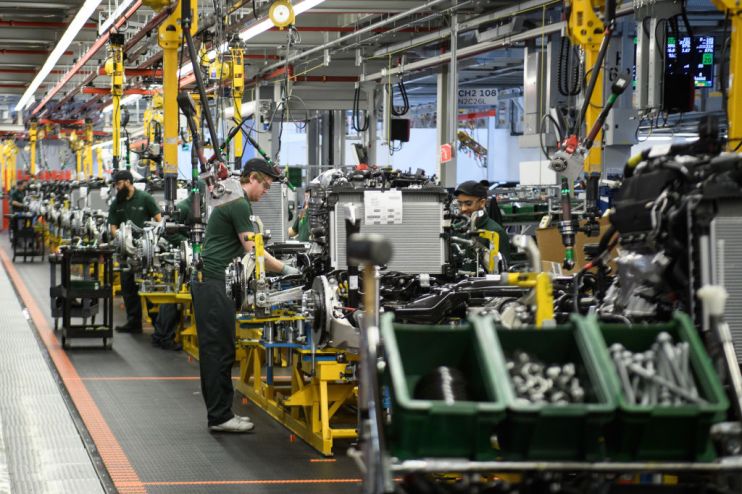UK PMI: Economy climbs to 16-month high, leaving rate cut less likely

The UK economy has returned to growth in January, according to a flash Purchasing Managers’ Index (PMI) reading, hitting a 16-month high as the Bank of England weighs up whether or not to cut UK interest rates.
The flash IHS Markit / CIPS composite PMI reading for the UK hit 52.4 in January, up from 49.3 in December. Any figure under 50 indicates a contraction, while any over 50 represents growth.
Read more: UK borrowing falls ahead of spring Budget
The composite reading exceeded expectations, and the strong performance is likely to stave off the prospect of an imminent rate cut by the BoE when its monetary policy committee (MPC) meets later this month.
The composite UK PMI reading for January had been expected to climb to 50.5 following December’s reading of 49.3.
“The survey data indicate an encouraging start to 2020 for the UK economy,” said IHS Markit chief economist Chris Williamson.
“Output grew at the fastest rate for 16 months amid rising demand for both manufacturing and services, suggesting business is rebounding after declines seen late last year.”
Services performance beats expectations
The services sector showed particularly strong growth, increasing from 51.1 to 52.9, also a 16-month high, while manufacturing rose to a nine-month high of 49.8.
Williamson said the figures point towards GDP growth of approximately 0.2 per cent in January, “representing a welcome revival of growth after the malaise seen in the closing months of 2019”.
He added: “It seems likely that the rise in the PMI kills off the prospect of an imminent rate cut by the Bank of England, with policymakers taking a wait and see approach as they assess the performance of the economy in the post-Brexit environment.”
Strong readings leave interest rate cut less likely
Pantheon Macroeconomics chief economist Samuel Tombs agreed with Williamson’s assessment.
“The big jump in the composite PMI… makes it likely, though not absolutely certain, that the [BoE’s] monetary policy committee will pause for thought next week,” he said.
“The big bounce in the UK PMI survey, particularly in the service sector, confirms that there has been a significant pickup in economic sentiment following the election,” said JP Morgan Asset Management’s Mike Bell.
“With a significant increase in fiscal spending on the way, today’s data suggests the economy should hold up, absent any significant external shocks, and may make the BoE reconsider whether a rate cut is necessary.”
Having initially held steady following the readings, sterling soon swung back sharply and dipped to -0.12 per cent against the dollar. The pound gained around one per cent against the euro.
“Sterling rallied into the PMI release but eased back a touch despite the survey figures being a little better than expected,” said Markets.com’s Neil Wilson.
“GBP/USD broke the Wednesday peak at 1.31524 but came back down to under 12.3140 following,” he continued, adding: “we are talking very, very minor moves here.”
Read more: Eurozone economy endures slow start to 2020
IHS Markit said the readings “highlighted a decisive change of direction for the private sector economy at the start of 2020”.
“Business activity expanded for the first time in five months, driven by the sharpest increase in new work since September 2018.”